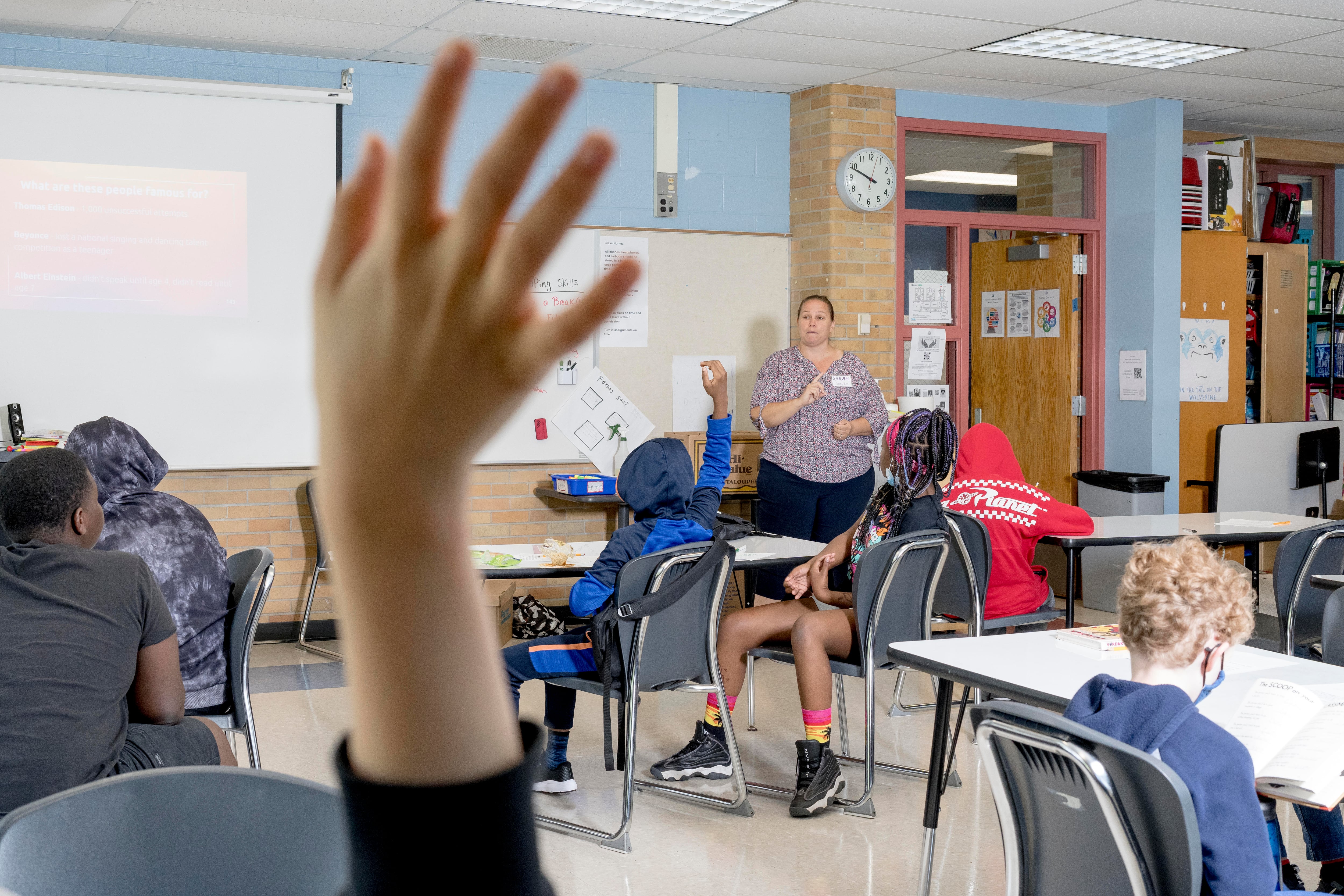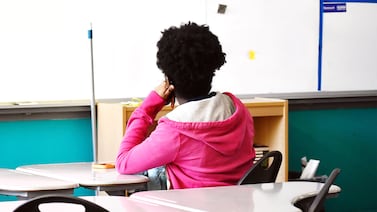Michigan State University will shorten its teacher preparation program from five to four years, saving education majors $16,700 in tuition and awarding them a credential more quickly.
The change alleviates a financial burden on students and addresses an educator shortage by getting teachers in classrooms faster, said Tonya Bartell, MSU’s associate director of elementary programs.
Revamping the program is one of several efforts in Michigan to help produce more teachers, particularly in hard-hit areas such as math, special education, and world languages. The state and education officials also are providing alternative routes to certification, stipends for student teaching, scholarships, and more.
The program change takes full effect with students enrolling next fall.
MSU graduates about 300 certified teachers per year, more than any other university in the state, according to the Michigan Department of Education’s 2022 workforce data report.
The vast majority of teacher preparation programs are four years. MSU adopted a five-year model in the 1990s to provide a year of student teaching to build up students’ preparation and confidence to manage their own classrooms as first-year teachers.
“We recognized that having a five-year program put a financial burden on students who were going into a field that was not a high-paying field,” Bartell said in an interview Thursday. “We’re trying to continuously think about that balance between preparing high-quality beginning teachers and not having them bear too much of a cost in the process.”
That’s a consideration for Jecholiah Marriott, a senior at Detroit’s Cass Tech who plans to become a teacher. She already has been accepted to Michigan State and several other colleges. She isn’t yet sure where she’ll go.
She knew MSU was a five-year program when she applied. Now the condensed program makes the university even more appealing.
“College is extremely expensive, so the financials alone make it extremely easier and kind of like a weight lifted,” said Marriott, 17. But she also sees value in a full year of student teaching. “It’s a trade-off,” she said.
Under the revamped program, students will be able to earn 16 general education credits through education courses that cover required subjects through a teaching lens, Bartell said. That shift will free up credit hours for student teaching.
Requirements for student teaching will vary.
Elementary education majors will student teach for a full year. At least eight weeks will be full time. The rest of the time, they will student teach three days per week, leaving time for coursework or paid substitute teaching, Bartell said. Students also will spend time in schools earlier in their education — one half day per week as sophomores and two half days per week as juniors.
Secondary education majors will student teach one day per week during the fall semester of senior year and five days per week during the spring semester, said Kyle Greenwalt, associate director for teacher preparation.
That’s more than the 10 weeks the state requires for certification.
Student teaching time is important, said Jasmine Ramahi, who runs Educators Rising, a grow-your-own program for East Kentwood High School students who aim to become teachers.
“The thing that makes you the most confident taking over a classroom is your exposure of being in a classroom,” Ramahi said in a telephone interview. “So, as long as the program has a lot of clinical hours or field work hours, I think students will feel supported.”
She said the truncated program will be more accessible to students who are unable to afford the longer program.
“Student loan debt is a real concern for a lot of students, and an extra year of student loan debt is pretty hefty, so being able to minimize that as much as possible does create more equitable outcomes,” Ramahi said.
That was one of the goals, Bartell said.
“We are very much committed to diversifying the teaching workforce and we have a focus on justice and equity,” she said. “If we want to live up to those ideals we have to [serve more than] students who are privileged enough to go through the five-year model. That isn’t creating the workforce we want.”
Accessibility and inclusivity were at the forefront as College of Education leaders revamped the program’s timeline and curriculum, Greenwalt said.
“We wanted to identify and eliminate every barrier while maintaining the strength of our program,” he said.
A five-year program made sense in the 1990s when there was more interest in the field of teaching than jobs available, Greenwalt said, but times have changed. The restructured program is more responsive to current needs.
“Having that fifth year is a luxury,” he said. Graduates of the five-year program “probably entered their first year of teaching with more confidence than people who’ll do four years, but I think they’ll probably still be plenty good.”
Graduation requirements and state certification exams will ensure that, he said.
“We’re trying to balance needs here,” he said. “There are people who never even applied” because of the program length.
“When you have the imperative to increase the racial diversity of our teaching force, we can’t be creating these barriers,” he said.
Current freshmen and sophomores have the option of switching to the four-year model now.
“Some of our current juniors are a little upset because they felt like they had missed the boat, being right on the cusp,” Bartell said. “The tenor I get from them is, ‘We think it’s great you’re moving to four years. And, wow, I wish I could have.’”
Chalkbeat staff writer Ethan Bakuli contributed. Tracie Mauriello covers state education policy for Chalkbeat Detroit and Bridge Michigan. Reach her at tmauriello@chalkbeat.org.







